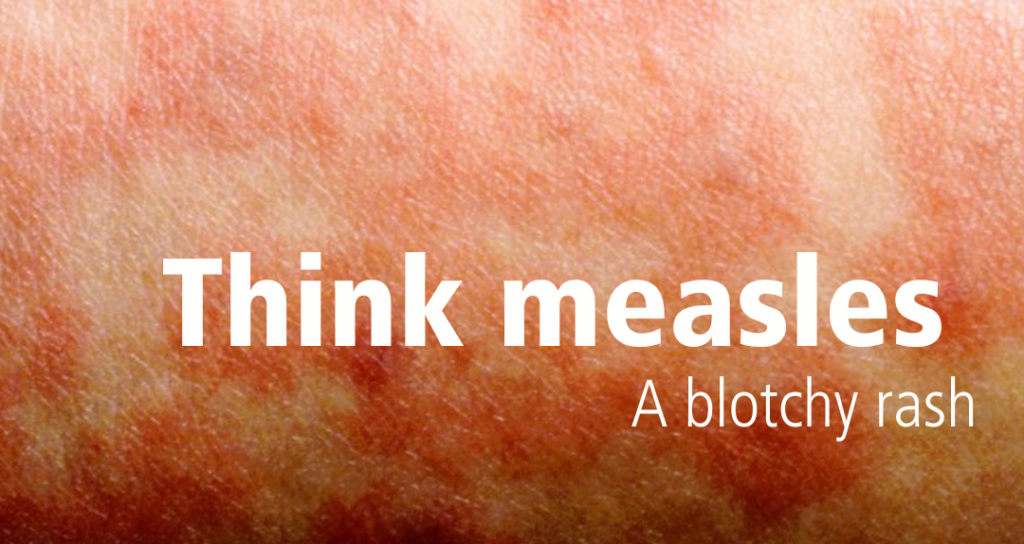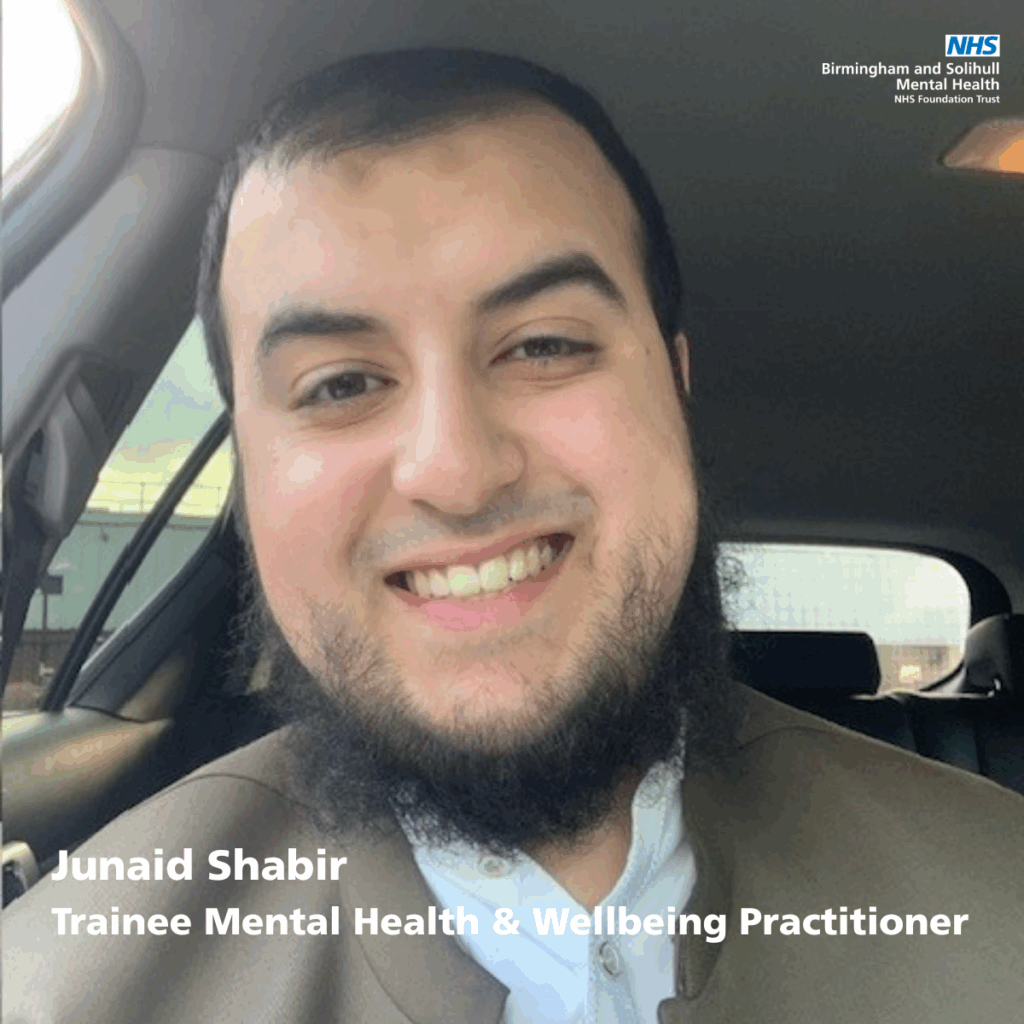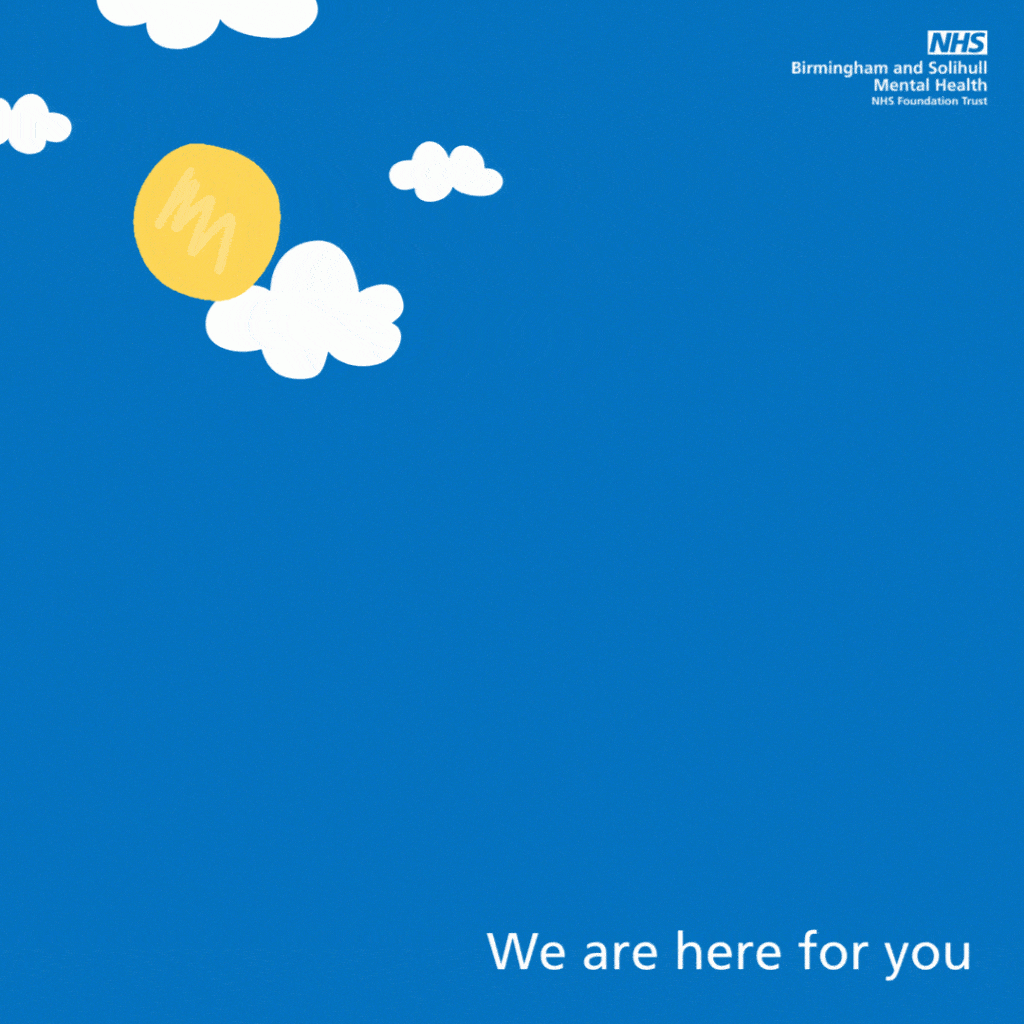Measles is more than ‘just a rash’, it is a serious illness that can be unpleasant and lead to complications, especially in vulnerable, immunocompromised, or pregnant patients. Having the MMR (measles, mumps and rubella) vaccine is the best way to prevent it.
Check with your local GP to see if you and your loved ones are up to date with this vaccine.
Measles is highly infectious to anyone who is not immune – being in the same room as someone with measles for more than 15 minutes is a significant amount of exposure.
Measles symptoms can include:
- high fever
- sore, red, watery eyes
- coughing and/or runny nose
- small red spots with bluish-white centres inside the mouth (see below image for reference)
- a red-brown blotchy rash, which appears after several days (see below images for reference)
Measles starts with a two to four day ‘prodromal’ phase before the rash appears, with a stuffy nose, cough, conjunctivitis and a fever. The rash generally starts behind the ears, spreads to the face, and then expands.
Ask for an urgent GP appointment or get help from NHS 111 if:
- you think you or your child may have measles
- you’ve been in close contact with someone who has measles and you’ve not had measles before or you’ve not had 2 doses of the MMR vaccine
- you’ve been in close contact with someone who has measles and you’re pregnant – measles can be serious in pregnancy
- you have a weakened immune system and think you have measles or have been in close contact with someone with measles
To avoid spreading measles, avoid close contact for at least four days from when the rash first appears. Do not share cutlery, cups, towels, clothes or bedding.
Visit the NHS Birmingham and Solihull website to find out more information on measles and how MMR vaccinations can protect you and your family.
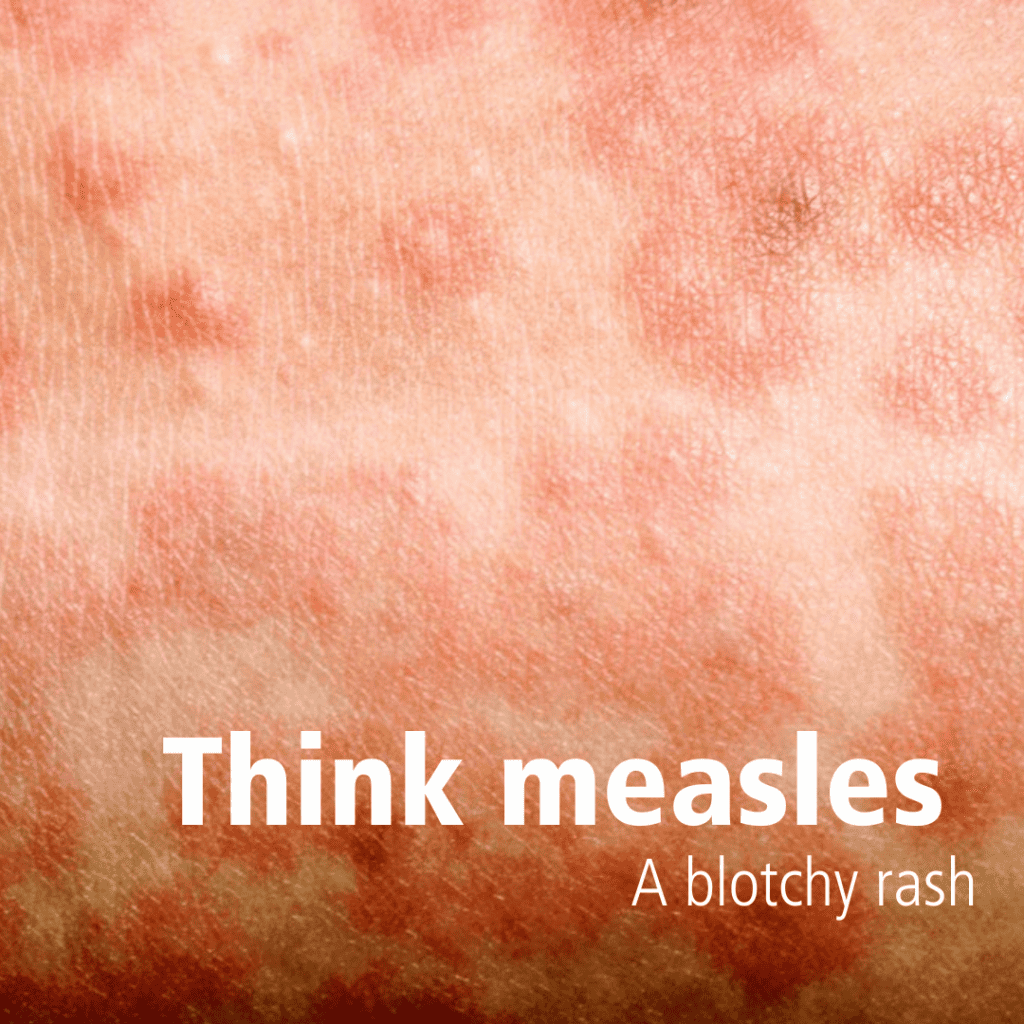
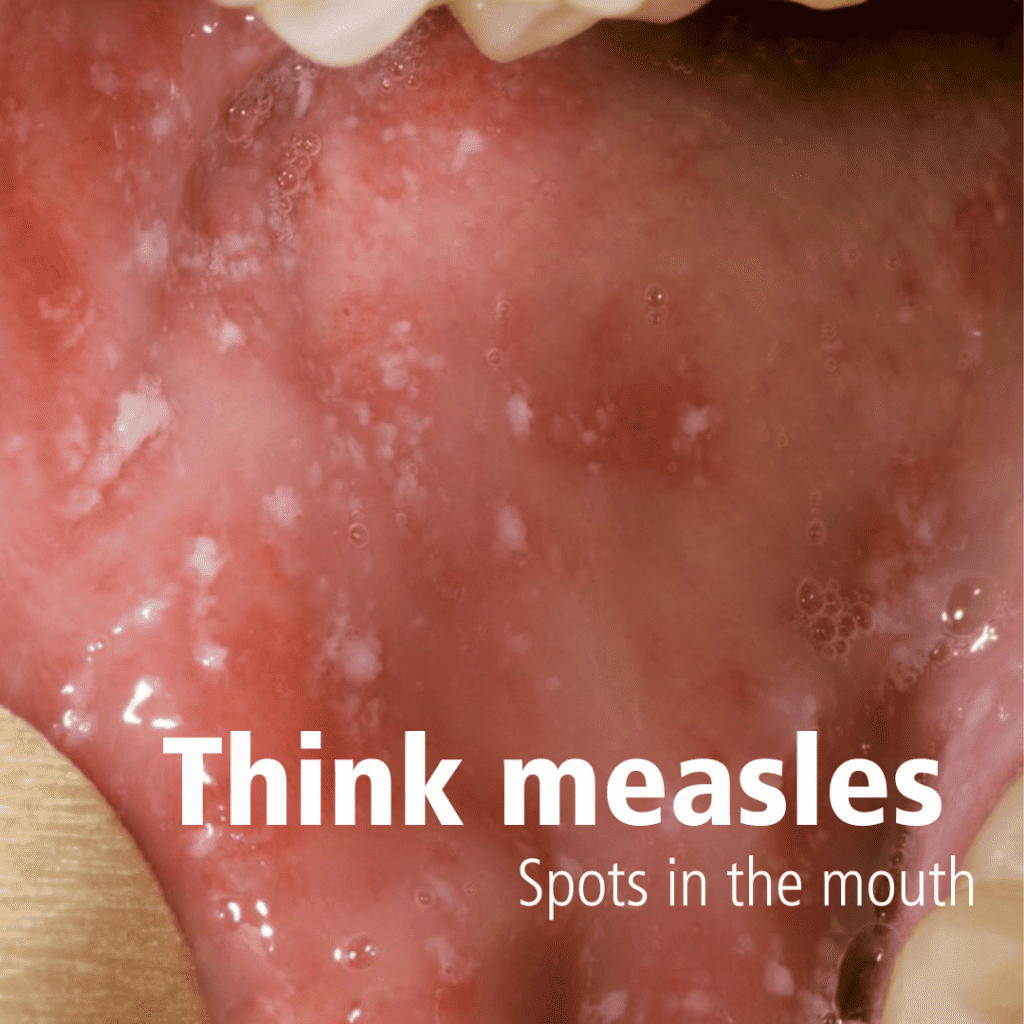
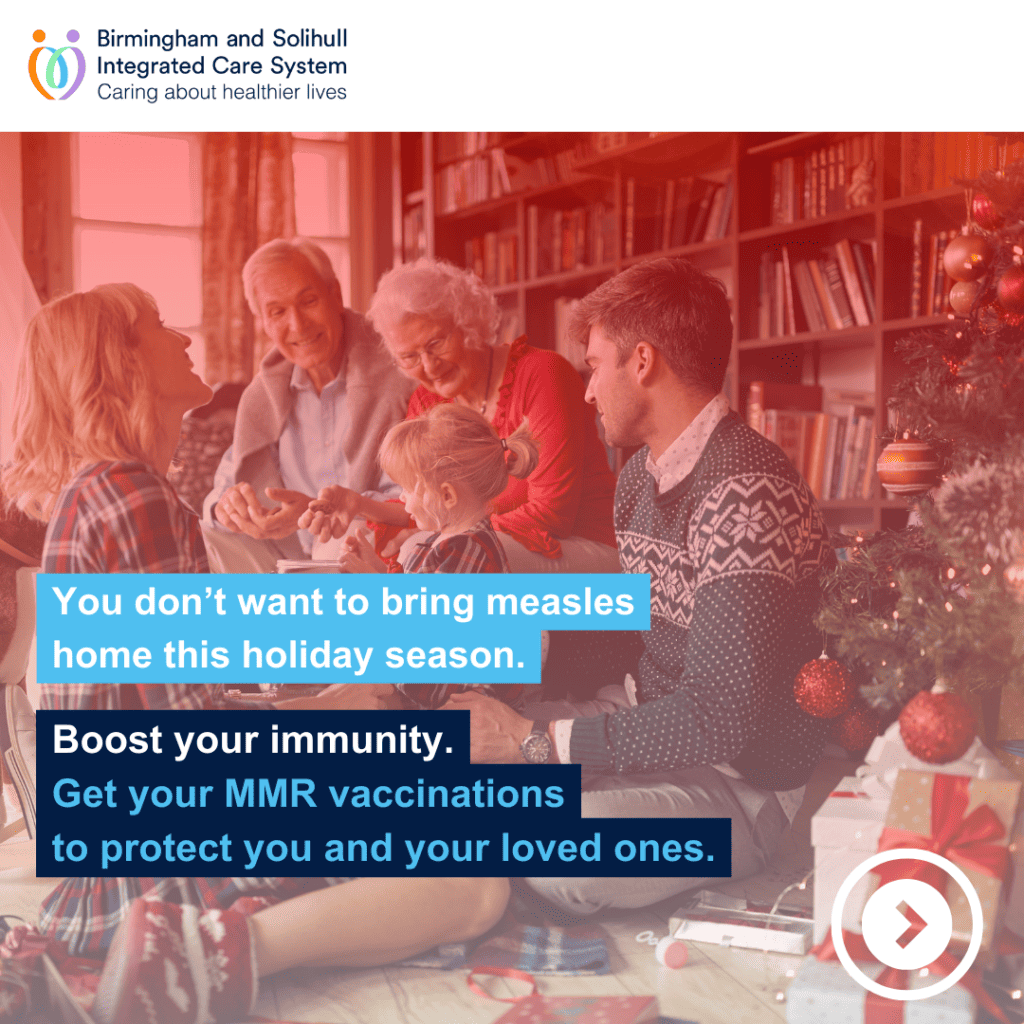
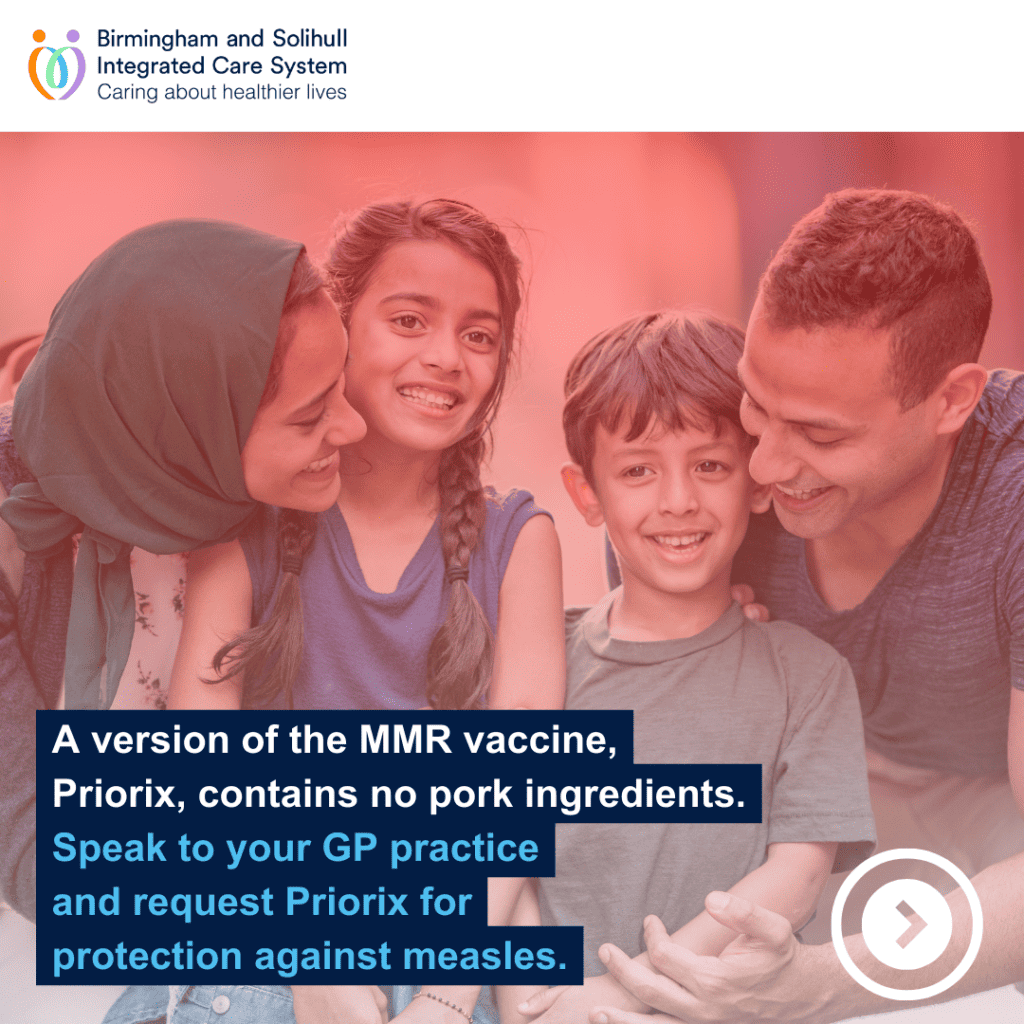
Published: 12 December 2023


